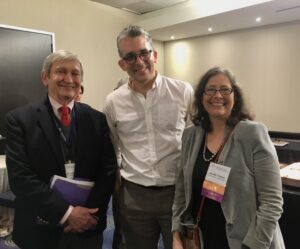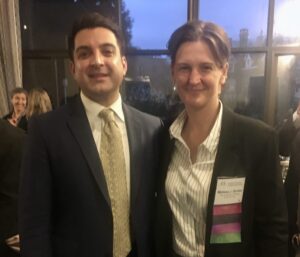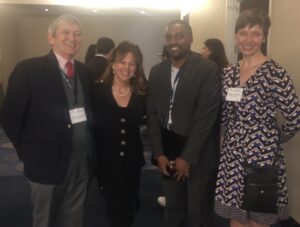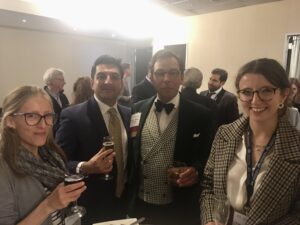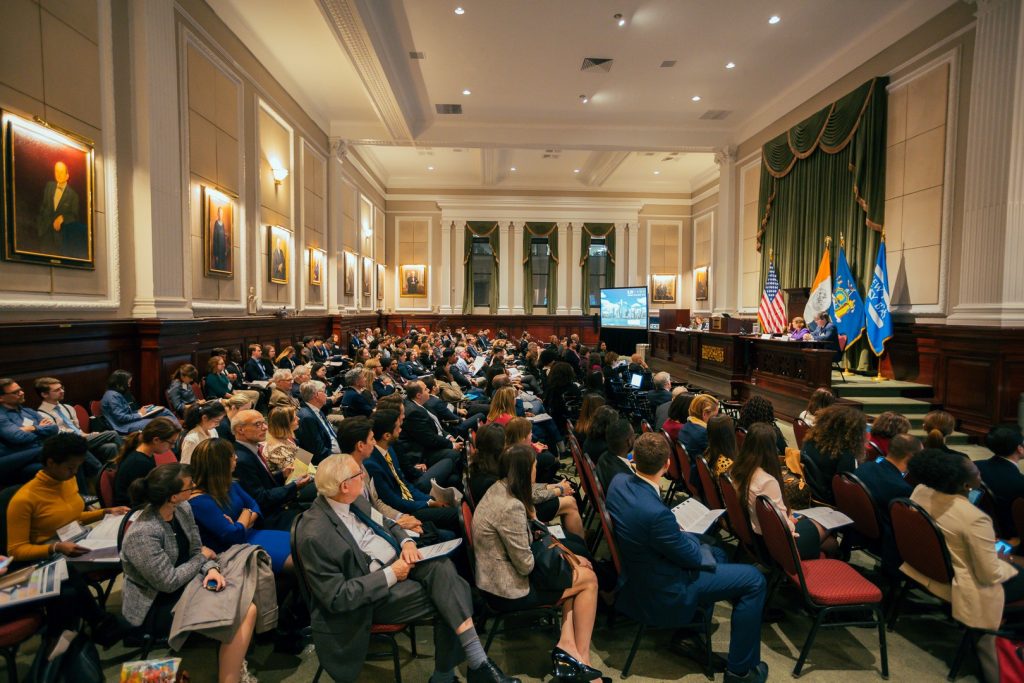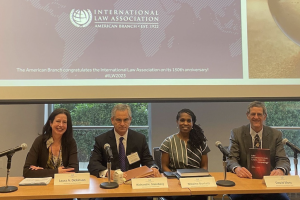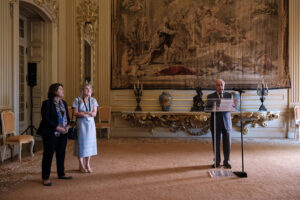ABILA as a Successful Centennial Organization
By Leila Nadya Sadat, President, International Law Association (American Branch)
In 1922, the year our Branch began, the world’s population was 1.876 billion and the British Empire was at its largest expanse, covering one-fourth of the world and ruling over one in five people on Earth. Warren Harding was President and saw his election as a mandate to keep the United States out of the League of Nations. Harding loved technology and introduced the radio to the White House. Men wore wingtip shoes and important suits; women wore bonnets; for, after all, the 19th amendment guaranteeing them the right to vote had only been ratified on August 18, 1920.
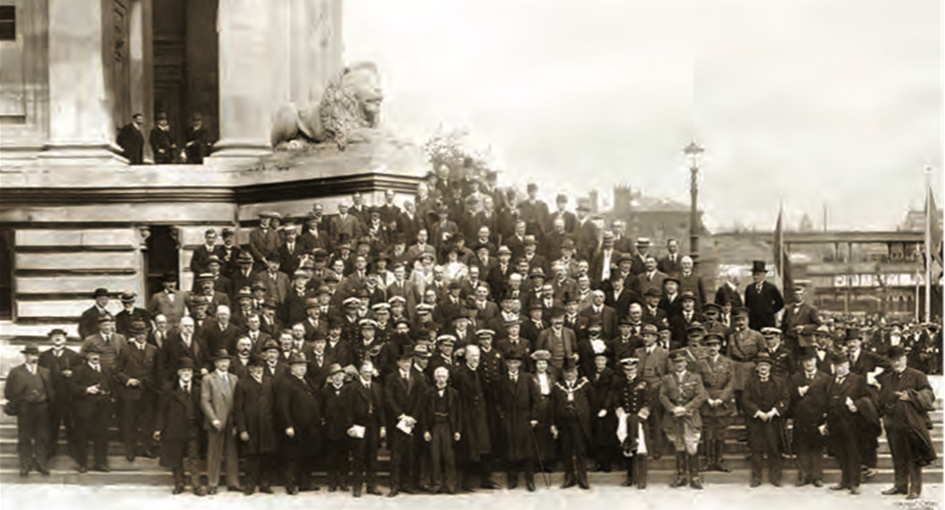
Attendees of the Twenty-Ninth Conference of the International Law Association, held in Portsmouth, UK (1920)
Professors John Noyes, Roger J. Traynor Professor Emeritus at California Western School of Law, and James Nafziger, Thomas B. Stoel Professor of Law and Director of International Law Programs at Willamette University College of Law, who have written a history of the Branch, entitled The American Branch of the International Law Association, have noted that the Branch began following “the Great War” in an America that was neither internationalist nor particularly progressive by modern standards. So how, given the difficult conditions of its birth, has our tiny organization managed to thrive for 100 years?
As it turns out, centennial organizations – those that last 100 years – are few and far between. A recent Harvard Business review article entitled, “How Winning Organizations Last 100 Years,” studied such organizations and found that they all share certain fundamental characteristics – characteristics that are recognizable within the American Branch.
These include having a stable core of values and purpose; excellent stewardship of those values and resources; a strategic commitment to understanding society, how they can shape it, and how they can get the talent to do this; humble, long-term stewards without large egos who are keen to learn from the previous leaders and more concerned about the organization they will leave behind than how it looks while they are there; public service and public openness; most of their staff are part-timers busy doing brilliant things elsewhere; seeking fresh input and new ideas from new recruits; and focus on tirelessly tweaking their “product” to make it better, not bigger; create bumps and embrace disruptive accidents that bring individuals with different perspectives together to question each other, and share problems, ideas, and opportunities. Maybe most importantly, these Centennials believe that you should help others as much as you can, and act like and become a family. The authors of the study of “the Centennials” suggest that one thing all the organizations and businesses studied had in common was that they were “radically traditional – with a stable core, but a disruptive edge.” And that describes ABILA to a tee.
- Larry Johnson, Christian De Vos, and Jennifer Trahan
- M. Imad Khan and MJ Durkee
- Larry Johnson, Leila Sadat, Charles Jalloh, and Valerie Oosterveld
- Jessica Peake, M. Imad Khan, Frédéric Sourgens, and Freya Doughty
We are, first and foremost, a service organization of individuals working for the betterment of the world through the teaching, study, and development of international law. We are small, but part of a larger whole, and we love that. We are bottom-up, rather than top-down; members can propose new committees and projects as well as serve on existing committees; propose panels at International Law Weekend (ILW), regional ILWs or other events. There is not very much gatekeeping in our organization; instead, there are a lot of entrepreneurs. We are by and large a volunteer organization with very little in the way of permanent staffing, and no permanent physical space; we encourage students to attend our meetings free of charge and keep our costs very low for members; and our board has been remarkably stable, particularly in the adoption of a leadership troika model which allows for continuity and effective collective governance. We have been incredibly blessed with extraordinary and devoted leaders, including many who spoke at our Centennial Kick Off, who have given of their time and talent to serve this organization and have also welcomed newcomers in, as times and the world has changed.
Today we continue to cleave to our core values and the International Law Association (ILA) mission of peace and justice through law. We have long-time dedicated board members and individuals in key leadership positions who steward us well; we continue to advance our mission through researching, teaching, and studying international law as a practical, as well as a scholarly, discipline, and our annual meeting, International Law Weekend, has continued to grow and flourish, even during a global pandemic. We continue to be a service organization and have encouraged the next generation of international lawyers to join – free of charge – and participate actively – free of charge.
We have reached out to new constituencies and embraced diversity and inclusion as key elements of our successful future while at the same time honoring our past. I have been proud to serve as ABILA’s second woman President and thrilled to see a woman as the Chair of our parent organization, the ILA, and the continuing diversity of our global organization. For this reason, I am convinced that in spite of a brutal war, the continued scourge of the pandemic, economic inequality, racism, religious tension, nationalism, and climate change, we will steadfastly continue to do what we do best: work together, as a community, dedicated to achieving, peace, and justice through law.
We look forward to the next one hundred years of transforming international law.


